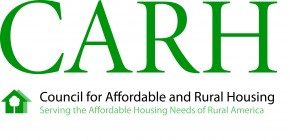- November 2022
- October 2022
- September 2022
- August 2022
- July 2022
- June 2022
- May 2022
- April 2022
- March 2022
- February 2022
- January 2022
- December 2021
- November 2021
- October 2021
- September 2021
- August 2021
- July 2021
- June 2021
- May 2021
- April 2021
- March 2021
- February 2021
- January 2021
- December 2020
- November 2020
- October 2020
- September 2020
- August 2020
- July 2020
- June 2020
- May 2020
- April 2020
- March 2020
- February 2020
- January 2020
- December 2019
- November 2019
- October 2019
- September 2019
- August 2019
- July 2019
- June 2019
- May 2019
- April 2019
- March 2019
- February 2019
- January 2019
- December 2018
- November 2018
- October 2018
- September 2018
- August 2018
- July 2018
- June 2018
- May 2018
- April 2018
- March 2018
- February 2018
- January 2018
- December 2017
- November 2017
- October 2017
- September 2017
- August 2017
- July 2017
- June 2017
- May 2017
- April 2017
- March 2017
- February 2017
- January 2017
- December 2016
- November 2016
- October 2016
- September 2016
- August 2016
- July 2016
- June 2016
- May 2016
- April 2016
- March 2016
- February 2016
- January 2016
- December 2015
- November 2015
- October 2015
- September 2015
- August 2015
- July 2015
- June 2015
- May 2015
- April 2015
- March 2015
- February 2015
- January 2015
- December 2014
- November 2014
- October 2014
- September 2014
- August 2014
- July 2014
- June 2014
- May 2014
- April 2014
- March 2014
- February 2014
- January 2014
GAO Releases Report on LIHTC Allocating Agencies
CARH’S BROADCAST E-MAIL – Regulatory Alert
June 10, 2016
On June 8, 2016, the Government Accountability Office (GAO) released a second report on the Low-Income Housing Tax Credit (LIHTC) entitled, “Low-Income Housing Tax Credit: Some Agency Practices Raise Concerns and IRS Could Improve Noncompliance Reporting and Data Collection.” (GAO-16-360)
The report finds that allocating agencies generally have processes to meet requirements for allocating credits, reviewing costs, and monitoring projects, but some of these practices raised concerns. Specifically:
- More than half of the qualified allocation plans (developed by 58 allocating agencies) that GAO analyzed did not explicitly mention all selection criteria and preferences that Section 42 of the Internal Revenue Code requires.
- Allocating agencies notified local governments about proposed projects as required, but some also required letters of support from local governments. The Department of Housing and Urban Development (HUD) has raised fair housing concerns about this practice, saying that local support requirements (such as letters) could have a discriminatory influence on the location of affordable housing.
- Allocating agencies can increase (boost) the eligible basis used to determine allocation amounts for certain buildings at their discretion. However, they are not required to document the justification for the increases. The criteria used to award boosts varied, with some allocating agencies allowing boosts for specific types of projects and one allowing boosts for all projects in its state.
GAO recommends that IRS clarify when agencies should report noncompliance and also suggests that IRS participate in the Rental Policy Working Group to assess the use of HUD’s database to strengthen IRS oversight. Through the Rental Policy Working Group, HUD collects and analyzes housing data, including LIHTC inspection results.
The first of GAO’s three reports on LIHTC, “Low-Income Housing Tax Credit: Joint IRS-HUD Administration Could Help Address Weaknesses in Oversight” (GAO-15-330) was released July 23, 2015, and recommended joint administration of the LIHTC program by HUD and the IRS. The GAO’s review of the LIHTC program was requested by Senator Chuck Grassley, who serves as Chairman of the Senate Judiciary Committee.
CARH’s Annual Meeting and Legislative Conference will begin on Sunday, June 12. On Monday a panel, “The World of Tax Credits,” will further review the report with GAO officials who will be participating on the panel. Further discussions will no doubt take place throughout the meeting.
If you have any questions, please contact the CARH National Office at carh@carh.org or 703-837-9001.





